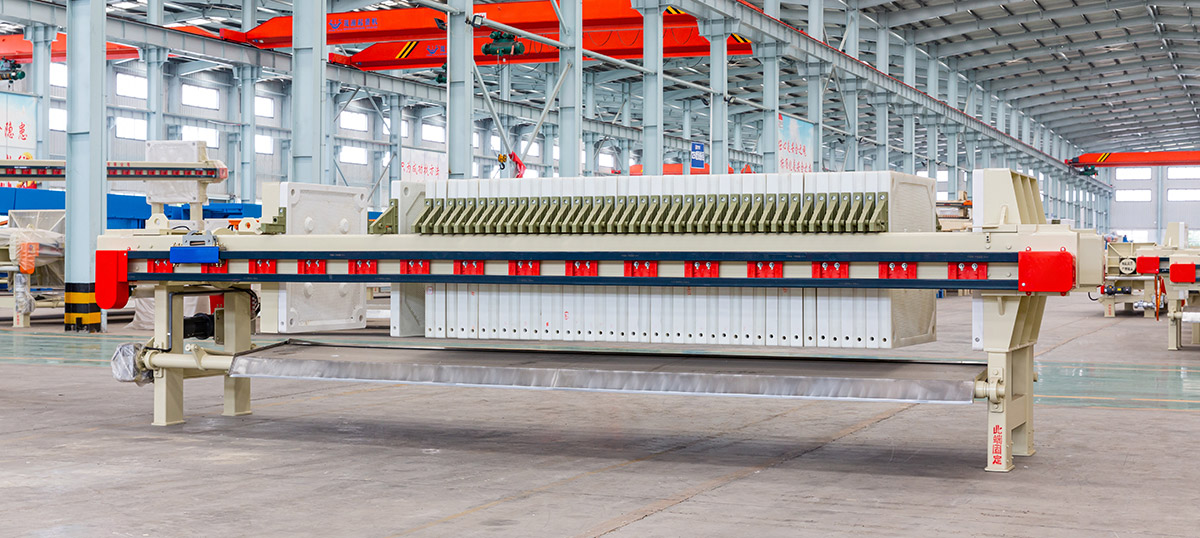
The wort filter press is a special membrane filter press in the beer brewing industry. It has stable performance and is widely used. It is a new type of energy-saving solid-liquid separation equipment. The insoluble grains are removed to make wort, which is called wort filtration. Wort filtration must not only obtain a high yield of saccharification extract, but also meet the requirements of various physical and chemical indicators of wort, and the filtration time is short.
At present, most beer plant adopt the lauter tank method. After the saccharification mash enters the lauter tank and stands still, the grains settle on the sieve plate to form a filter cake, and the filtrate is filtered out of the wort through the filter cake by it’s own gravity. Although the structure and working method of the filter tank have been continuously improved, it is difficult to fundamentally solve the following problems:
- The filtration speed is slow, and the daily processing is generally only 8 batches;
- There are strict restrictions on the proportion of fine powder auxiliary materials such as barley, wheat malt, and corn starch;
- The saccharification mash has a large contact area with the air, and absorbs more oxygen, which affects the taste of beer.
The advantages of new type mash filter press/wort filter press:
- High efficiency : Thin-layer filtration is adopted, the filtration speed is fast, the production cycle is less than 120min, and saccharification can reach 12-16 batches per day.
- Save cost : The amount of washing water is small, suitable for the production of high-concentration wort, and the production can be increased through high-concentration dilution. The concentration of the first wort can reach 30°P, and the concentration of the final wort can reach more than 15°P. It is especially suitable for the transformation and expansion of the saccharification workshop. Just by changing the original filter tank into a filter press, the saccharification output can be doubled, saving more than 50% of the capital compared with direct investment in a saccharification system.
- Less yield : With the wort filter press, the malt needs to be finely crushed, and the fine particle size increases the specific surface area of the saccharification reaction, thereby increasing the saccharification yield. In fact, the extract yield reached or exceeded that of the laboratory.
- Different recipes : Using a wort filter press, the addition of auxiliary materials such as rice, wheat, cornstarch, and even syrup has no obvious impact on the filtration speed and time, and it is even possible to produce special beer with only wheat malt and auxiliary materials instead of barley malt.
- Flexible Feed amount : The feeding volume of the box type wort filter press with diaphragm can fluctuate within the range of 80-110% of the usual feeding volume; the box type wort filter press without diaphragm can be equipped with a movable filter blind plate, and the feeding amount is more flexible. This is especially applicable to beer companies in areas with distinct peak and low seasons.
- High air impermeability : During the process of feeding, filtering, and washing grains, the mash and wort are in a closed environment, which reduces the oxidation of the wort filtering process. At the same time, wort contains less fatty acid and has low turbidity.
- Excellent heat preservation : The polypropylene material has good thermal insulation performance, and the heat dissipation is greatly reduced compared with the filter tank, which reduces energy consumption and protects the workshop environment.
- Drier grains : The moisture content of wheat grains is reduced from 90% of the filter tank to about 73%, which reduces transportation costs and environmental pollution, especially for the production of pellet feed that requires drying grains, which can reduce the need for drying grains and waste water treatment cost.
- Easy maintenance : CIP cleaning only needs to be done once in 60-80 batches.
- Less labor cost : Realize all automatic operation, low labor intensity.
